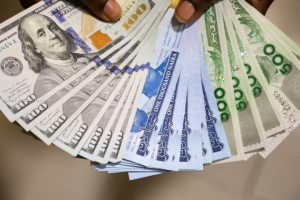
The impact of the COVID-19 pandemic and its effect on the global economy are very evident. Developed and developing economies are still struggling to procure vaccines with the hope of reviving their economies.
In their efforts to help guide the economic bearings of the country, a number of financial institutions and allied bodies like the Business Risk Consulting unit of KPMG in Nigeria, and Norrenberger, have released their 2021 business and economic outlook report with various recommendations.
The KPMG business risk reports focused on highlighting areas of risks that are uppermost in the minds of Nigerian business executives and how they can be surmounted.
According to the KPMG business risk report, prior to the pandemic period, the highest concerns for Nigerian economic players across industries were the regulatory, fiscal and monetary policy, as well as foreign exchange volatility risks. For 2021, it is the COVID-19 risk that is top on the list. This risk is fueled largely by the growing health crisis.
The regulatory risk which still exists, reflects the significant anxieties business players continue to have over regulatory uncertainties as a result of increased regulatory scrutiny and sanctions within the system, coupled with the uncertainty about actions to be taken by regulators to cushion the impact of COVID-19 on the economy. Fiscal and monetary policy risks are also stated, as uncertainties about further devaluation of the naira persist to weigh strongly on business players.
In Norrenberger’s report, the commitment of $12 billion from the World bank for health issues and COVID-19 vaccines, was mentioned as a strong tool that is expected to breath some life into the country as the huge resources would be invested into research and health development. This will have multiple health benefits and increase economic activities as well.
On fiscal policy, Tijani Oladipupo, Head, Business Advisory, Norrenberger, said that, the report expects the government to continue with what it was doing in 2020 in terms of tax relief and liquidity support as the global economy is trying to achieve immunity in the area of COVID-19.
He further stated that, the report recommends a deliberate action by government to boost local consumption and investment in line with the 2020 finance act with lots of tax reliefs for SME. This, they believe should help pull the economy gradually out of the woods this year.
Reacting to their expectations on monetary policy, Oladipupo disclosed that, while they remain optimistic, they did not see significant deviation from what was done last year, but they hope that the Central Bank of Nigeria will be able to take its stand as far as the monetary policy is concern.
The report also believes that the African Continental Free Trade Agreement (AFCFTA) will also play a significant role in Nigeria’s economic growth in 2021. Oladipupo also remain optimistic that, the AFCFTA, with the reduction in tariff among member nation will cause significant improvement in “intrapreneurship” as well as manufacturing activities across member countries.
It’s a known fact that crude oil is trading at about $55 per barrel, and Nigeria will continue to depend heavily on oil as far as foreign exchange is concern. The Norrenberger boss noted that, regardless of 5.3 trillion naira deficit, crude oil is likely to sell from $62 to $65 per barrel.
Equity market on the other hand is expected to do well in 2021 with 5.2 percent report for January. The outlook for equity market will yield positive result just like what the report said last year which saw movement of funds from fix income market to equity market, and eventually saw Nigerian equity market as the best performer in global equity market.
Oladipupo said that they expect a positive result in the equity market, “we have seen the result move as high 5.23 per cent from January till date. Therefore, we expect to see positive performance in Nigeria equity market”, he added.
The report says in the last four weeks, some of the banking stock have been doing well in terms of yielding dividend in the market. Investors will be more aware of where the money is and they will go for high yielding stock. Generally, it is expected that, the equity market will do well in line with what is seen in the fixed income market.
Read Also: 2021: How to Move the Economy Beyond Current COVID Challenges
In terms of rate moderation, there are quite a number of variables. First is 2021 budget deficit of 5.01 trillion naira, in addition to other CBN bill hinging at 4.1 trillion. So, there is no much increase in yields. It is also expected that corporate borrowers will take advantage of this downward trend in the fix income market. All these factors put together will determine the swing of the positive yield in 2021.
Alternative asset is another area the report wants investors to look out for. In Norrenberger’s report for last year, it was projected that bitcoin would appreciate by as far as 300 per cent, and it happened.
The report is convinced that crypto currency will still do well this year, but not necessarily like 2020. From a market informed position it still advised that investors should invest in this alternative asset.
By Oche Samson

